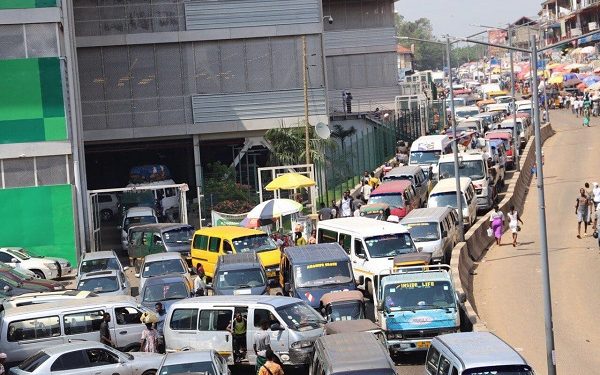Accra is known for its crowded and chaotic traffic. However, this is not just annoying to the inhabitants, it can also end in deadly circumstances. When traffic guidelines are not met and cars are insufficiently equipped, sacrifices are being made.
In the capital of Ghana, the streets are crowded and clogged. Everywhere turn you turn, taxis, mini-busses – so-called tro-tros – and motorcycles are trying to make their way through. Adults and children are walking in-between the cars trying to sell their products, and right-of-way rules consist of who honks the loudest. Somehow, from what you will experience in the middle of the chaos, you will get the impression that this mostly ends well because the inhabitants already know their way around.
But mostly does not mean always. While the officially registered number of traffic deaths in Ghana is at 1,802 and at 3.206 in Germany, the dark figure is shocking. The actual number is estimated to be 3,327 in Germany, but over 7,000 in Ghana.
How can one country cause so many more deaths in traffic than another?
One reason for this is that traffic rules are often neglected while driving. While trying to avoid potholes, it often happens that a car just drives through the ongoing traffic. Another factor is the fact that rarely anyone uses a seatbelt. In most cars, they do not even work properly and you cannot pull them out. In the tro-tros, seat belts simply do not exist. This and the bumpy streets, as well as the chaotic traffic situation, is a combination that can easily end deadly.
Not just the seat belts are insufficient in Ghanaian cars. Most of them are imported from European countries – Germany being the leader in this matter. It is not a rare thing to see tro-tros, taxis or bolts with German inscription on the streets of Accra. To put it bluntly, the cars that no longer pass the traffic guidelines in Germany end up here first, before they are put on the scrap heap. Important components like filters or airbags are often removed before the used cars are being shipped to African countries, including Ghana, since they can be used to make an extra bit of money. Thus, the cars do not meet safety and environmental guidelines, but are still in use. Due to their high amount of emission, these old cars are extremely harmful to the environment. And they cause car accidents to happen more frequently.
An import ban of old cars is not necessarily the solution. Ghanaian car mechanics depend on imports – a law like that would destroy thousands of jobs. Instead, export and import countries need to work together to take care of the problem. West African countries need to agree on uniform guidelines, and exporters need to make sure that the exported cars meet sufficient standards.






